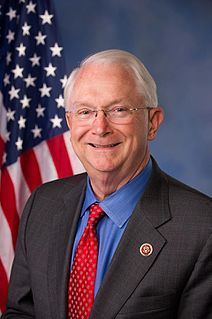A Quote by Rutger Bregman
While it won't solve all the world's ills - and ideas such as a rent cap and more social housing are necessary in places where housing is scarce - a basic income would work like venture capital for the people.
Related Quotes
While it's absolutely important that we build housing for our low-income residents, when we are talking about opening up hundreds of sites for housing, we should be trying to build affordable housing for all of our residents struggling to pay rent. That means housing for teachers, for nurses, for janitors.
The standard of 'affordable' housing is that which costs roughly 30 percent or less of a family's income. Because of rising housing costs and stagnant wages, slightly more than half of all poor renting families in the country spend more than 50 percent of their income on housing costs, and at least one in four spends more than 70 percent.
The bottom line for housing is that the concerns we used to hear about the possibility of a devastating collapse—one that might be big enough to cause a recession in the U.S. economy—while not fully allayed have diminished. Moreover, while the future for housing activity remains uncertain, I think there is a reasonable chance that housing is in the process of stabilizing, which would mean that it would put a considerably smaller drag on the economy going forward.
I can remember the time when, if we wanted a house or housing, we relied on private enterprise. In fact, Americans built more square feet of housing per person than any other country on the face of the earth. Despite that remarkable accomplishment, more and more people are coming to believe that the only way we can have adequate housing is to use government to take the earnings from some and give these earnings, in the form of housing, to others.
Politically, sometimes you get situations where rent control will go through. It is especially true in an emergency, where there is a sudden, sharp increase in demand for housing or a cut back in supply. People will simply not allow the marketplace to allocate housing resources and so you get pressures for rent control. Once you have it, it is hard to eliminate.




































